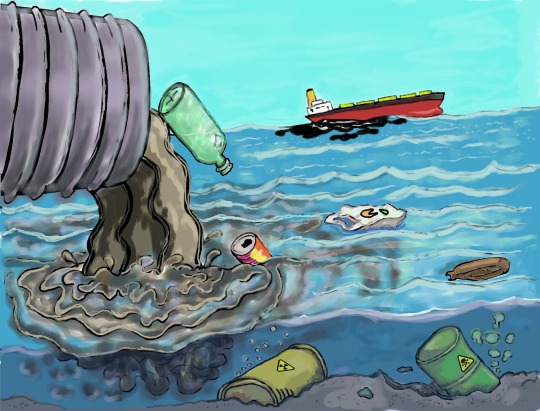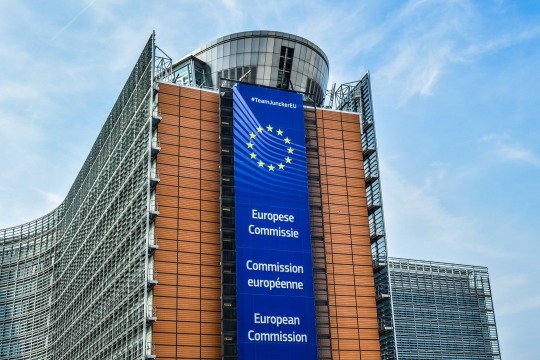Text
Overcoming the Plastic Waste Crisis - A Multifaceted Approach Needed to Drive Change

The plastic waste crisis has escalated to a critical level, with an overwhelming amount of waste accumulating in our oceans, landfills, and ecosystems. The consequences of our dependence on plastics are becoming increasingly evident, impacting not only the environment but also public health, biodiversity, climate change, and human rights. Despite the urgency of the situation, many companies have been slow to take action. Consequently, a coalition of investors, managing $10tn in assets, is urging major companies like The Coca-Cola Company, Unilever, Amazon, PepsiCo, and McDonald's to take "urgent action" and significantly reduce their plastic footprint.
While investor pressure is undeniably essential in combatting plastic waste, it represents only one aspect of a comprehensive, long-term solution. To encourage companies to take more action on tackling plastic waste, we must first identify the underlying factors contributing to this crisis and implement multifaceted strategies that focus on several key areas where change can make a significant impact.
Firstly, governments should establish a robust regulatory framework by implementing stricter regulations and guidelines to limit plastic production and consumption. Enforcing these rules will compel companies to seek sustainable alternatives and reduce their reliance on single-use plastics. Furthermore, governments should incentivise research and development of eco-friendly materials and packaging solutions.
Secondly, investors and financial institutions should continue using their influence to encourage companies to adopt sustainable business models. By withholding investments or offering financial incentives, such as lower interest rates for companies with strong environmental, social, and governance (ESG) performance, they can guide businesses towards reducing their plastic footprint.
Thirdly, the power of consumer choice is a force that should not be underestimated. Raising awareness of the plastic waste crisis and encouraging consumers to vote with their wallets will make companies more inclined to adopt environmentally friendly practices. Social media campaigns, educational initiatives, and grassroots movements can play a crucial role in shifting public opinion and consumer behaviour.
Fourthly, companies should be encouraged to adopt a circular economy model, which emphasises reducing material consumption, reusing and recycling resources, and minimising waste. By doing so, they can lessen their environmental impact and create a more sustainable future.
Lastly, transparency and accountability are paramount. Companies must be open about their plastic usage and waste management strategies, enabling consumers and investors to hold them accountable for their actions. This can be achieved through regular reporting, third-party audits, and public commitments to reduce plastic waste.
In conclusion, the responsibility to address the plastic waste crisis lies with all stakeholders, including governments, investors, companies, and consumers. By working together and adopting a multifaceted approach, we can encourage companies to make significant strides in reducing their plastic footprint, paving the way for a more sustainable world for future generations.
Join the conversation on LinkedIn. What are your thoughts on the plastic waste crisis and the actions needed to combat it? Share your opinions in the #comments.
#headlines today news#trending news#finance#latest news#news#plastic waste#environment#climate justice#climate crisis#climatestrike#climate hope#climate action#climate activism#climate change#esg investing#breaking news: investing
0 notes
Text
The Adventures of FOMO Man: Overcoming the Fear of Missing Out in the Stock Market

In today's world, the stock market is a game of cat and mouse, and investors are feeling the pressure to play offense and defence simultaneously. With the economy at a crossroads, there is a growing fear of missing out on a potential stock-market rally while avoiding the risk of losing everything. This fear has given birth to a new superhero: FOMO Man, who is ready to tackle the stock market and overcome the fear of missing out. But who is FOMO Man, and what does he stand for?
FOMO Man, whose real name is Freddy, is an ordinary guy who works in a cubicle in a nondescript office building. But, like many others, he is tired of watching from the side lines and is eager to dive into the stock market. Freddy's journey to becoming FOMO Man began when he overheard his co-workers talking about their investments in Tesla, Apple, and Amazon. Suddenly, he felt a pang of regret for not having invested in these companies earlier.
This feeling of regret led Freddy to become FOMO Man, a superhero whose mission is to overcome the fear of missing out. Armed with a laptop, a calculator, and a cup of coffee, FOMO Man navigates through the stock market, always on the lookout for the next big thing. He spends his days analysing charts and graphs, reading financial reports, and listening to stock market podcasts.
FOMO Man's first investment was in a company that manufactured a device that would make it easier for people to cook bacon. The device was called the "Baconator," and it promised to revolutionise the way people cooked bacon. FOMO Man was convinced that the Baconator would be a hit and invested all of his savings in the company. Unfortunately, the Baconator turned out to be a dud, and FOMO Man lost all of his money.
But FOMO Man did not give up. He learned from his mistake and started investing in companies that had a proven track record of success. He invested in Apple, Tesla, and Amazon, just like his co-workers. He also invested in companies that were involved in emerging technologies, such as self-driving cars and artificial intelligence. Over time, FOMO Man's investments paid off, and he began to see a steady return on his investments.
However, FOMO Man's success did not come without its challenges. He had to overcome the fear of missing out on potential profits, which sometimes caused him to make impulsive investment decisions. He had to learn to be patient and wait for the right opportunities to come along. He also had to learn to manage his risk by diversifying his portfolio and not putting all of his eggs in one basket.
FOMO Man's story is a cautionary tale for all investors. The stock market is a risky business, and the fear of missing out can cloud our judgment and lead us down a dangerous path. But, like FOMO Man, we can overcome our fears and become successful investors by being patient, doing our research, and managing our risk.
So, are you feeling bullish about stocks? Do you think the market risks lie ahead in the coming months? What are your thoughts on FOMO Man's story? Share your comments here or on my LinkedIn and join the conversation!

#Investing #Stockmarket #FOMO #Investor #Finance #Money #Education #Entertainment #Blogging #Satire #Humour #Humor #LinkedInNews #Investment #LinkedInNewsEurope #Europe #Education #FinancialLiteracy #Apple #Tesla #Amazon
#fun facts#satirism#satire#sarcasm#irony#business news#education#financial literacy#finance#economy#news#personal finance#financial markets and investing#investing stocks#investissement#investment#investors#stocks#financial#profit#the fomo is real
0 notes
Text
Is Dubai the New SwitzArabia of Commodities Trading? A Satirical Spin on the Shifting Sands of Trading Hubs!

Hey there, dear friends!🌟 Dive into my latest piece and let's chat! Share your thoughts in the comments, and if you enjoyed the read, feel free to share it with your network. Thanks for stopping by! 🗣️💼🚀 Or head to my LinkedIn where you can follow me and add a comment on the current post.
As we take a stroll down the streets of the City of Gold, one can't help but notice an influx of sharply dressed, Russian-accented businesspeople mingling with the local merchants. And no, this isn't the latest season of an international spy series, it's the result of sanctions prompting a mass exodus of commodities traders from Switzerland and London to Dubai. The emirate, with its visionary leaders, has become the new SwitzArabia of commodities trading, leaving the traditional hubs to eat its dust.
Sure, London and Switzerland have long been the crème de la crème of the commodities world, but as a wise man once said, "change is the only constant." With EU and Swiss sanctions throwing a spanner in the works for trading with Russia, Dubai is more than happy to hold the door wide open, inviting these frustrated traders to set up shop in its sandy paradise. Neutrality? Who needs it when you've got sun, sea, and sanction-free trade.
But wait, there's more! Why settle for grey skies and stuffy suits when you can don your sunglasses and shorts while trading in the world's hottest commodities hub? It's not just the Russians who have seen the light - London's elite commodities merchants are also hopping on the bandwagon, lured by the growing pool of merchant counterparts, low taxes, and an ever-enticing work-life balance. After all, when you're raking in unprecedented bonuses, why not enjoy a tax-free, beachfront lifestyle to boot?
As reported by Bloomberg, Hartree Partners and Freepoint Commodities are among the high-profile firms that have packed their bags and headed for the sunny shores of Dubai, leaving their former trading centres feeling a tad envious. One could argue that this is just the tip of the iceberg; as more traders make the move, will we see a domino effect in the industry?
Perhaps it's time for London and Switzerland to take a hard look in the mirror and consider whether their golden days of commodities trading are numbered. After all, as the old saying goes, "if you can't beat them, join them." And with Dubai's strategic location, low taxation, and proximity to major oil and gas producers, who wouldn't want to be part of the winning team?
So, is Dubai the new SwitzArabia of commodities trading? Well, while it may not yet have the stature of London, Geneva, or Stamford, it's certainly giving them a run for their money. And as traders continue to flock to the emirate, one thing is clear: Dubai is no longer just a glitzy playground - it's a global commodities powerhouse in the making.
Now, dear #LinkedInders, I'd love to hear your thoughts on this fascinating shift in the world of commodities trading. Don't be shy, let's get the conversation rolling in the #comment section below! And hey, if you enjoyed this satirical take, why not #share it with your network and see if they're ready to trade in their suits for sunglasses? Thanks for reading and sharing! 🌞💼🌴
FOLLOW ME ON LinkedIn

RELATED ARTICLES / SOURCES:
Dubai’s Growing Commodities Hub Is Now Enticing London Traders
Dubai Becomes New Switzerland for Traders of Russian Commodities
#Dubai #CommoditiesTrading #SwitzerArabia #London #Switzerland #Finance #Investment #Satire #Sanctions #Trading #Russia #LinkedinNewsEurope #LinkedinNewsMiddleEast Get Hired by LinkedIn News Europe Get Hired by LinkedIn News Get Hired by LinkedIn News Middle East LinkedIn News LinkedIn News Europe LinkedIn News Middle East
#business news#finance#trending news#Russia#London#Switzerland#Dubai#Geneva#Trading#Commodities#Europe#Sanctions
0 notes
Text
Is the European Central Bank's Rate Hike Strategy Adequate in Taming Inflation?

In the epic narrative of monetary policy, the European Central Bank (ECB) has taken a cautious approach in its battle against the enduring dragon of inflation. The recent decision to raise the deposit rate by a mere quarter-point to 3.25% reflects a careful assessment of the situation at hand, but leaves many wondering whether the move is sufficient to subdue the menace.
This latest rate hike represents the smallest increase the ECB has made in its ongoing campaign, following three prior increases of double the magnitude. The financial realm had anticipated this move, and the deposit rate now stands at its highest level since 2008. However, the ECB's Governing Council has emphasized that future decisions will be data-dependent, ensuring that rates reach levels restrictive enough to guide inflation back to the 2% target.
ECB President Christine Lagarde has assured that the central bank is not taking a breather in its fight against inflation, with the current decision enjoying near unanimity. Nevertheless, some policymakers had favored a more substantial increase, sparking questions about whether the ECB is being overly cautious or rightly judicious.
In a bid to appease the more hawkish factions, the ECB has agreed to halt reinvestments under its Asset Purchase Program by July. This decision comes as the central bank is sitting on an enormous bond pile amounting to roughly €5 trillion, accumulated from both the APP and the Pandemic Emergency Purchase Program.

While the ECB is contemplating the conclusion of its extraordinary monetary tightening, it is apparent that the task is far from complete. Markets and analysts predict two more rate hikes of 25 basis points each, setting the ECB on a different path than the Federal Reserve, which recently hinted at a pause in its own series of rate increases.
Lagarde has acknowledged that "significant" upside risks to the inflation outlook persist, as retail prices and negotiated wage agreements may continue to exert upward pressure. In addition, the central bank has turned its gaze toward corporate profit margins, which could further contribute to sustained price pressures if a strong labor market continues to bolster demand.
Despite the ECB's 375 basis points of tightening since July 2022, the goal for price growth remains elusive. The divergent opinions among policymakers, coupled with the cautious approach to rate hikes, calls into question the adequacy of the central bank's strategy in taming the inflation dragon. With an uncertain landscape ahead, the tale of the ECB's monetary policy endeavors is far from over, and the conclusion of this saga remains to be seen.
Related article by Bloomberg: https://www.bloomberg.com/news/articles/2023-05-04/ecb-delivers-smaller-interest-rate-hike-after-core-inflation-slowed
#breaking news#headlines today news#business news#trending news#economy#finance#latest news#news#ecb#europa
0 notes
Text
Is Box-Ticking Really That Bad? A Tale of ECB Bank Supervisors and the Unlikely Heroes They Are

Once upon a time, in a land filled with numbers and complicated banking regulations, there lived a group of unassuming heroes. They were the bank supervisors of the European Central Bank (ECB). Now, you might think of them as just "box-tickers," but they played a vital role in maintaining financial stability.
A recent report commissioned by the ECB reviewed its banking supervision practices and found some rather interesting things. The report, while not directly accusing the supervisors of being box-tickers, certainly alluded to a culture that favored routine and inflexibility over innovation and adaptability. This culture was embodied by IMAS, a computer system used by the ECB, which dictated how banking supervision was executed and had a significant impact on the supervisory culture.
Now, you might be thinking, "What's the big deal? Surely, there are worse things than a few box-tickers keeping banks in check?" Well, the reviewers believed that the IMAS system was too inflexible and outdated, leading to supervisors spending too much time on completing standard templates rather than truly understanding banks and their business models. This could be one reason why the "annual" supervisory review process could take up to fourteen months from start to finish.
As a result, the ECB was advised to update and improve IMAS, as well as overhaul the supervisory culture to become more forward-looking, analytical, risk-sensitive, and responsive. Sounds fantastic, right?
Well, hold your horses. While the supervisory culture might be a bit rigid, the purpose of bank supervision is, after all, to provide financial stability, not intellectually rewarding employment. And on that front, the ECB hasn't done too poorly. Remember Wirecard? That wasn't the ECB's fault; that was BaFin's mess.
Now, the ECB's supervisory system has a good reason for being so prescriptive: it's only a decade old and had to be cobbled together from various national authorities. This meant that they had to find common ground and even deal with a lack of trust among different authorities. To this day, there's a rule stating that the supervisory team for any bank can't be led by someone of the same nationality as the bank's headquarters.
And that little bit of mistrust might just be the secret ingredient in the ECB's success. The constant risk of regulatory capture looms large, and being too chummy with the banks can lead to bad habits. But a good old box-ticker, armed with a simple square box and a tick, can stand firm against the persuasive CEO or CRO who tries to bend the rules.
So, while the ECB might want to make some changes, they should think twice about discarding the humble box-ticker completely. Because sometimes, a little box-ticking can go a long way in maintaining financial stability in a world of ever-changing risks and challenges.
And so, our story of the unlikely heroes, the box-ticking ECB bank supervisors, continues. They might not be the flashiest or most creative bunch, but they help keep the financial world safe, one tick at a time. And in the end, isn't that what really matters?
#breaking news#economy#finance#business news#headlines today news#news#latest news#trending news#ecb#financial stability#Bank Supervisors#europe#europa#euro
0 notes
Text
Will Britannia Tame the Dragon of Gaming's Grandest Alliance?

In the verdant realm of the UK, a battle of epic proportions unfolded. A dragon named #Microsoft, sought to unite with #Activision Blizzard, the enchanted gaming kingdom. This formidable alliance, worth a staggering $69 billion, aimed to conquer the world of cloud gaming. But the dragon was in for a surprise.
Roaring in defiance, Microsoft and Activision vowed to challenge the decision. The kingdom of Activision quivered, with shares plunging nearly 12%. The company lamented that Britannia seemed "closed for business."
The tale has reached distant lands, as Europe and the United States ponder the fate of this gaming empire. Has the valiant CMA protected the realm from a monopoly, or has it unwittingly stifled progress? Time shall reveal the outcome of this legendary struggle in the #gaming world.
0 notes
Text
Will the Mighty SEC Succumb to the Ferocious Forces of the Climate Crusaders?

And so, the winds began to howl, and whispers of a great war echoed through the land. The battle in question was for the very future of our dear planet, as climate change threatened to ravage all life within its embrace. The cries of the environmental crusaders reached the ears of the SEC, urging them to wield their power and protect the world.
In response to these calls, the SEC proposed groundbreaking climate disclosure rules, requiring companies to reveal their contributions to greenhouse gas emissions and the impact of climate change on their businesses. Yet, the shadows of opposition loomed large, as Republicans and businesses, fearing the shackles of new regulations, threatened to unleash their legal wrath upon the SEC.
In the midst of this brewing storm, the valiant Sierra Club and the resolute Earthjustice prepared for battle. These noble warriors, sworn to defend the Earth, would not let the SEC abandon their climate crusade. They vowed to sue the agency should they soften or forsake the demand for Scope 3 emissions reporting, which divulges the secrets of a company's supply chain emissions.
Now, the Sierra Club and Earthjustice stand ready, poised to strike a blow to the mighty SEC while simultaneously preparing to protect them from the oncoming legal onslaught of the Republicans and businesses. For these warriors have a history of fighting on both sides, as the Sierra Club once sued the Environmental Protection Agency whilst defending it in another battle.
Yet, as the sands of time trickle away, the final outcome of this epic saga remains shrouded in uncertainty. The SEC, aware of the looming threat, must tread carefully as they craft their final rules. But even the most meticulous of plans may not be enough to evade the inescapable fate of lawsuits in these contentious times.
Indeed, one wonders if the venerable SEC will stand tall and wield its power to demand climate accountability from the powerful titans of industry. Or will it bow to the pressures of opposition and forsake the Earth in its time of need? The answer lies in the days to come, as the storm approaches and the future of our world hangs in the balance.
So, we ask you, dear reader, will the mighty SEC succumb to the ferocious forces of the climate crusaders? Will the winds of change blow in favour of our planet? Only time shall reveal the conclusion of this tale, as we eagerly await the climactic battle between the defenders of the Earth and the mighty SEC.
#SECclimateBattle #SierraClub #Earthjustice #ClimateCrusaders #Scope3Emissions #ClimateDisclosureRules #FinancialRegulation #GreenhouseGasReporting #EcoWarriors #DefendersOfEarth
0 notes
Text
Will Central Banks Save the World, or Just Ruin Our Weekend Plans?

In a world where central banks dictate the fate of nations, it's refreshing to see them unanimously agree on something: boosting interest rates. After all, who wouldn't love a bit of extra challenge in their lives? With the European Central Bank (ECB) and the US Federal Reserve playing the leading roles in this economic theatre, we can only sit back and enjoy the show as they boldly attempt to save the world economy – or perhaps just ruin our weekend plans.
The valiant Federal Reserve, on a year-long crusade against the stubborn nemesis called inflation, is set to raise interest rates for the 10th consecutive time. One can't help but admire their unwavering commitment, despite the US economy beginning to show signs of slowing down. Surely, no other force could have extended this economic expansion, except for their tight grip on the economy. Bravo, Fed, bravo!
Meanwhile, the ECB takes the stage with its own rate decision. Their latest act? A quarter-point hike. The suspense is palpable as economists anticipate how the headline inflation measure and the underlying index will affect the ECB's decision. Will the core inflation quicken unexpectedly, leading to a more significant rate move? Only time will tell, but one thing's for sure: the ECB certainly knows how to keep us on our toes.
Of course, central banks across the globe refuse to be left out of the spotlight. From Brazil's unwavering stance on its key rate to Colombia's tumbling assets, central banks worldwide ensure that the drama never ceases. And let's not forget our friends down under in Australia, whose Reserve Bank dutifully maintains the status quo on rates. Their resolve in the face of inflationary pressures is truly inspiring.
In the UK, our beloved officials will enter a blackout period before their decision on May 11. Among the data to be released are shop prices, Nationwide house prices, and the Bank of England's mortgage approval and consumer-credit data. Who needs blockbuster movies when we have such a thrilling lineup of economic events?
As China continues to recover from the aftermath of Covid lockdowns, South Korea's trade figures paint a gloomier picture. One can only wonder if central banks will ever find the perfect balance in their quest for economic stability. Will they ever be able to harmoniously combat inflation and maintain growth? That remains the million-dollar question.
So, as finance ministers and central bank governors gather for the annual Asian Development Bank meeting, with climate financing measures on the agenda, let's raise a glass to our central banks. Their tireless efforts to juggle monetary policies, inflation rates, and economic growth truly make for an edge-of-your-seat spectacle. We eagerly await their next act, hoping against hope that their performance will, for once, not leave us picking up the pieces of their high-stakes decisions.
#breaking news#business news#economy#finance#headlines today news#latest news#news#trending news#world news#inflation#recession#interest rates#central banks#ecb#fed#federal reserve#europe#europa#eu
0 notes
Text
Is the Fed Asleep at the Wheel? Silicon Valley Bank Collapse Raises Eyebrows!

Once upon a time in the land of banking regulation, there was a powerful entity called the #FederalReserve. It was tasked with keeping a watchful eye over the banks in the kingdom. But alas! The great and powerful Fed appears to have dozed off, allowing the collapse of Silicon Valley Bank (SVB) to occur right under its nose.
Michael Barr, the #Fed’s vice chair for supervision, admitted in a report that the supervisors failed to fully appreciate #SVB’s vulnerabilities as it grew in size and complexity. It seems that the watchdogs were too busy admiring their shiny badges to take the necessary action when risks were identified. The result? Panic, chaos, and a game of finger-pointing between the Fed and the Federal Deposit Insurance Corp. (FDIC).
Meanwhile, banks like First Republic Bank in San Francisco are left to navigate choppy waters, searching for a lifeboat amidst the storm. To add insult to injury, the FDIC has released a separate report that essentially says, “We found problems, but it’s not our fault the bank failed!” Classic blame-shifting manoeuvre, wouldn’t you say?
Now, Michael Barr has called for an overhaul of rules for banks with more than $100 billion in assets and a re-evaluation of how regulators treat deposits above the $250,000 federal insurance limit. Apparently, hindsight is 20/20, and the time to act is after the ship has already sunk.
Fed Chair Jerome Powell has given his support for these proposed changes, which would reverse some decisions made earlier in his tenure. One can’t help but wonder if the motivation behind this sudden change of heart is to save face or genuinely create a more resilient banking system.
In response to the report, some Republicans in Congress have criticised the push for more regulation. Rep. Patrick McHenry, chairman of the House Financial Services Committee, referred to it as a “self-serving justification of Democrats’ long-held priorities.” As if the world of banking regulation wasn’t confusing enough, let’s throw some political mud-slinging into the mix!
What’s truly remarkable is that amidst all the bureaucratic bungling, the Fed has placed blame on its own structure. It seems the watchdogs were too busy playing fetch with red tape to do their jobs effectively.
And so, dear reader, as we reach the end of this cautionary tale, we must ask ourselves: will the Federal Reserve learn from its mistakes, or will it continue to snooze through future crises? Only time will tell. But one thing is certain: when the next bank collapse comes knocking, the Fed might want to consider setting a louder alarm clock.
#breaking news#economy#finance#business news#headlines today news#latest news#news#trending news#svb#stock market news today: svb#svb collapse#fdicinsured
4 notes
·
View notes